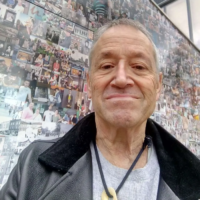
You can't legislate relationship
Last week, Prime Minister Rishi Sunak decided to take on sick note culture yet failed to mention that many of those accused of being long term sick are waiting for operations/appointments due to lack of investment into our NHS. Currently there are 1.9 million people on waiting lists for mental health support tin the UK. Our young people, who are struggling with their mental health more than any previous generation, can wait up to two years for support with their mental health. They have also lived through the largest pandemic the world has known in recent years, and the lockdowns relating to this have created a tsunami of new mental health problems, as well as accelerating existing ones; there was no vaccine that could cure this. Then add in a cost-of-living crisis, and you have a perfect storm.
As someone who struggles with their mental health, when listening to our Prime Minister, I felt despondent. I appreciate there may well always be people who abuse the system, but the bigger question I feel we should be asking is, “What sort of culture we want to be?” If we define culture as the way we do things around here, I do not want to be part of a culture that appears to blame the sick for being sick.
The missing jigsaw piece
I believe we are missing something vital from our conversation about health - and that is the importance of relationships and community. We seem to be more polarised than ever, yet a 2020 study on social isolation and loneliness in older adults found that, among other damaging effects, loneliness is associated with the following:
- An increased risk of premature death from all causes, to rival that of deaths caused by smoking, obesity and physical inactivity
- A 50% increased risk of dementia
- A 29% increased risk of heart disease and a 32% increased risk of stroke
- Higher rates of depression, anxiety and suicide
- Among heart failure patients, a nearly four times increased risk of death, 68% increased risk of hospitalisation, and 57% increased risk of emergency department visits
Research has indicated that the effect of loneliness is equivalent to smoking 15 cigarettes a day and can significantly increase the risk of premature death, while more than three-quarters of GPs see between one and five lonely people a day.
Several years ago, I hit a perfect storm with everything going wrong at once. My eldest daughter was very ill for six weeks with a condition called HSP; I was diagnosed with a degenerative condition which resulted in having both my legs broken in three places and rebuilt inside a metal frame (which terrified me). My dad was then diagnosed with cancer, and was in hospital for 9 weeks and only discharged after four different operations; my other daughter was diagnosed with additional needs, and at the same time my wife had a miscarriage.

I’ve always struggled with anxiety, but when you go through such a traumatic time, it adds rocket fuel to your anxiety. It was as though I was spiralling out of control.
I got to the point where I wasn’t even sure I wanted to live any more, because I felt I was such a burden. It was then that I started searching for something a little bit deeper.
When I started to struggle with my mental health I didn’t know where to turn. I was being told I should just be ‘more grateful’, ’try harder’, ‘pull yourself together’, ‘stop attention seeking’ and even ‘make better choices’. I was honestly trying, yet I felt I was struggling alone. I was off work, and went to GP for help: but as well as being prescribed medication I know I needed something else which would sustain me and help me to move towards recovery – and that was relationships.
After my recovery I longed to target the brokenness of a mental health system where it appeared you essentially must be suicidal before receiving proper support and intervention. In a society that focuses on self-actualisation and tells us that leaning on others is weakness, I believe we must restore community support and relationships to alleviate the loneliness and lack of belonging that is a major driver of and contributor to mental illness in our culture today.
Out of this longing, the charity Kintsugi Hope was founded, based on the Japanese art of Kintsugi, where broken pots are mended with gold, highlighting the beauty in our scars. Offering free mental health groups in the community, there are now 400 registered organisations in the UK running peer-led wellbeing groups, with 10,000 people having been through these so far. These groups, which last twelve weeks, are modelled on the concept that mental health is more than medicine. In an individualistic culture that tells us constantly we need to make it alone, Kintsugi Hope wellbeing groups allow people to belong without having to fit in, and to experience the unconditional community, acceptance and support that is often so lacking in our fast-paced, social-media, appearance driven world.
You can't legislate relationship - but I maintain it is vital to mental illness recovery.

Patrick Regan OBE is a speaker, writer, mental health advocate and founder of mental health charity, Kintsugi Hope.














